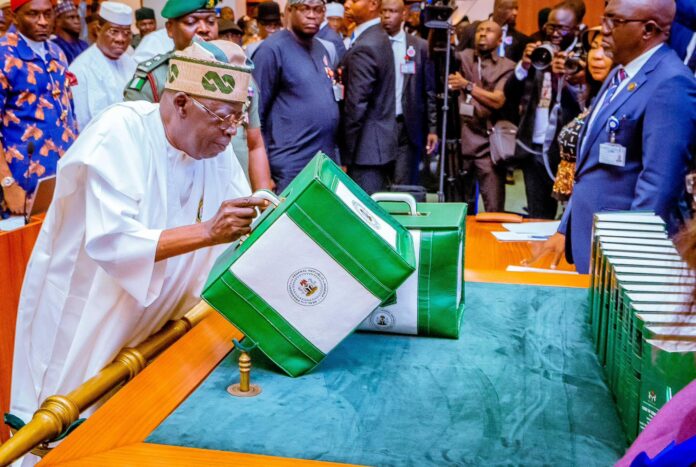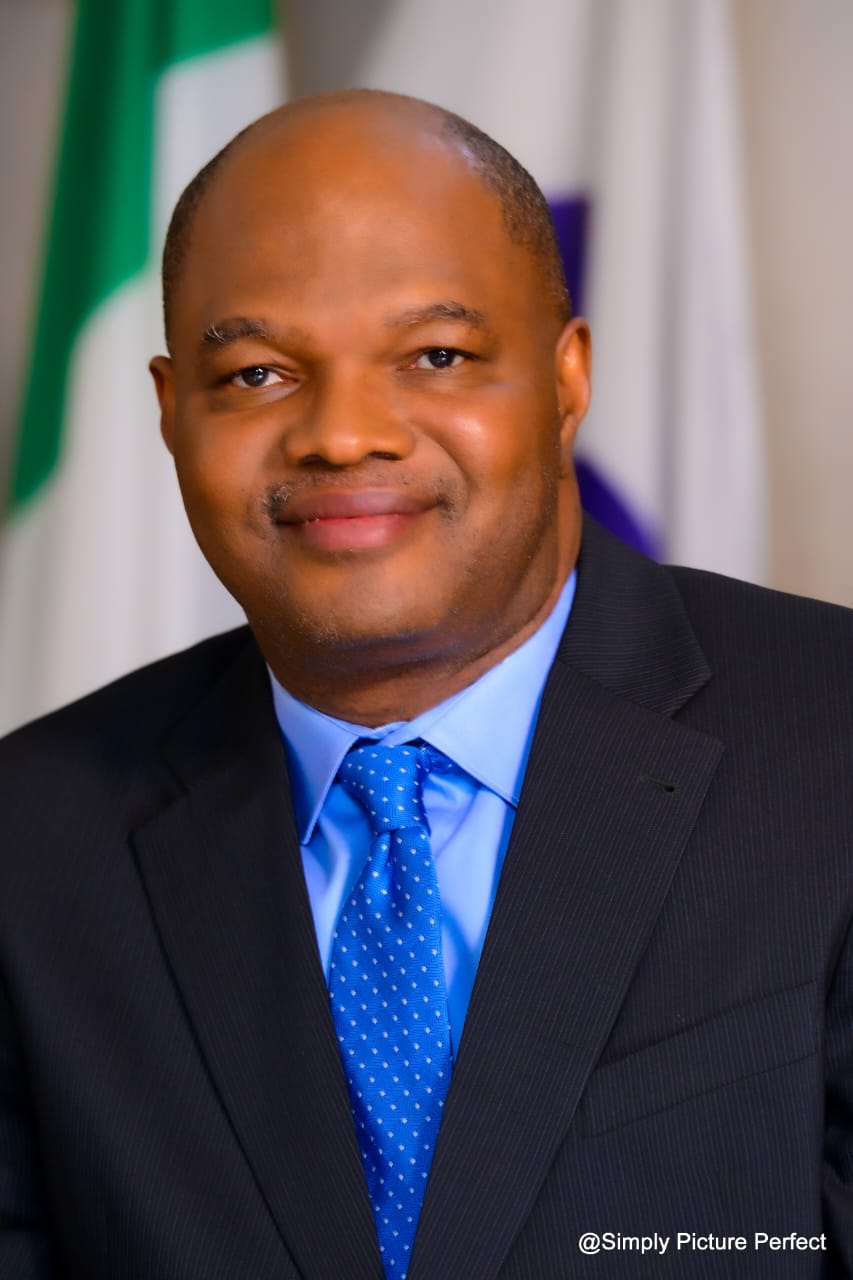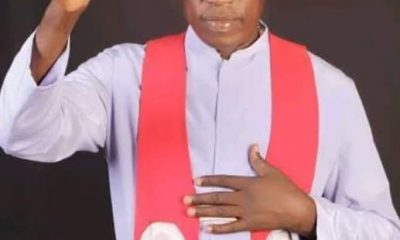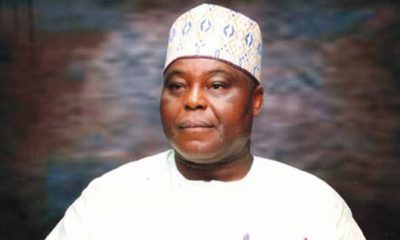Business
National Assembly passes N54.99t bill for 2025

Nigeria’s National Assembly, on Thursday passed the 2025 Appropriation Bill, approving an aggregate expenditure of ₦54.99 trillion for the fiscal year.
The bill indicated major allocations for recurrent spending, capital projects, debt servicing, and statutory transfers.
Here is the breakdown of the key highlights:
Total Expenditure: ₦54.99 trillion
Statutory Transfers: ₦3.65 trillion
Recurrent (Non-Debt) Expenditure: ₦13.64 trillion
Capital Expenditure: ₦23.96 trillion
Debt Servicing: ₦14.32 trillion
Fiscal Deficit: ₦13.08 trillion
Deficit-to-GDP Ratio: 1.52%
Presidential Adjustment To Budget
The bill was passed by the Senate and house of representatives, after President Bola Tinubu’s revision of the initial budget proposal from ₦49.7 trillion to ₦54.2 trillion which he said was to address economic demands and bolster infrastructural development.
Business
ACCI DG Jideani identifies bottlenecks against ease of doing business, recommends remedies

The Director-General of the Abuja Chamber of Commerce and Industry (ACCI), Mr. Agabaidu C. Jideani, has identified some pressing challenges that hinder the growth of businesses in Nigeria to include regulatory burdens, infrastructure deficits and limited access to finance.
To address above issues, Jideani said there was a need for government and private sector to work together to create conducive environment that supports the growth and development of businesses in Nigeria.
In a statement issued Tuesday, which was signed by Olayemi John-Mensah ACCI Media/Strategy Officer and sent to Nationwide Reports, the Director-General emphasised that the government should prioritize the implementation of business-friendly policies and focus on improving budget execution, particularly in infrastructure development.
He urged the government to amongst other things streamline regulatory frameworks to eliminate overlapping and complex processes that burden businesses, expedite tax reforms to address multiple taxation, simplify procedures, and reduce costs and delays in obtaining permits and licenses, and ensure effective and timely implementation of infrastructural projects to enhance the operating environment for businesses.
“The government must create a stable and supportive environment that inspires confidence among investors and businesses alike,” Mr Jideani stated.
Addressing the private sector, Mr. Jideani called for a proactive approach to adapting to the evolving business climate and encouraged businesses to leverage artificial intelligence (AI) and innovative technologies to improve operational efficiency and enhance customer satisfaction.
He also added that businesses to embrace flexible work arrangements, such as remote working, to reduce costs and foster a better work-life balance for employees and invest in staff welfare and development to boost productivity, enhance talent retention, and improve overall business performance.
Mr. Jideani also underscored the importance of supporting SMEs, which play a crucial role in Nigeria’s economic development. He identified the following as key areas of focus:
• Reducing regulatory burdens to allow SMEs to operate efficiently.
• Enhancing access to affordable financing and resources to enable growth and sustainability.
• Protecting SMEs from harassment and intimidation by government agencies and municipal authorities.
The DG ACCI further emphasised the urgency of addressing these challenges and implementing reforms, noting that the Abuja Chamber of Commerce and Industry has consistently advocated for business-friendly policies in the fiscal year 2025.
“By working together, the government and private sector can create a conducive business environment that fosters growth, development, and prosperity,” he said.
According to him, the ACCI remains committed to supporting initiatives that drive economic growth and providing a platform for dialogue and collaboration among stakeholders in Nigeria’s business ecosystem.
Business
Big Lie: NCC has not approved tariff increase for mobile communications providers

Stories making the rounds in the media that the Nigerian Communications Commission (NCC) has approved the proposal for a 40% increase in tariffs for services rendered by telecommunications service providers beginning in January 2025 has been described as false.
The reports claimed that this will translate into N15.40 per minute for telephone calls and N5.60 for Short Message Service (SMS). It added that data bundles, 1GB data plan will cost a minimum of N1400.
This threat of tariff hike raised concerns about the impact this will have on the telecom service consumers who are already overstretched by the increasing hardship in the country amid poor purchasing power of the citizens compounded by higher prices for basic commodities and services.
However, reacting to the story,, a source from the NCC said the purported reports about tariff increase “is fake news, spurious and the figment of the imagination of the author of the news.”
The sources said that NCC has a well-known procedure for price increases for telecoms services. However, the commission’s regulatory power, as contained in the 2003 NCC Act, does not permit it to do so until it has conducted wider consultation with industry stakeholders based on the “cost-based study,” which will provide the empirical validity for the recommendation. This is done to protect consumers’ interests.
This line of action, he added, will look into the current economic realities of the country based on the macroeconomic variables such as inflation and exchange rate. He stressed that the board of the NCC has a role to play in the matter after wider consultation before any action can be taken.
Business
The misplaced confidence in Tinubu’s re-election amid national crises

By Martins Oloja
George Akume and others predicting that Bola Ahmed Tinubu will win the 2027 presidential election should provide clarity on what informs their confidence.
Is it based on Tinubu’s supposed performance, suggesting he has achieved remarkable results that no opposition candidate can rival?
Or does it hint at a possible continuation of electoral malpractice that has marred Nigeria’s democratic process? Such emphatic declarations from a high-ranking official like the Secretary to the Government of the Federation (SGF), made on national television, deserve scrutiny and accountability.
It is deeply concerning that such statements can be made without being interrogated by journalists or the public. The Tinubu administration has presided over a governance landscape characterized by severe socio-economic challenges. Hunger has reached unprecedented levels, insecurity continues to escalate, the cost of living is unbearable, and critical sectors like education and electricity are in dire straits. Furthermore, nepotism, favoritism, and tribalism have become more entrenched, perpetuating the failures of the previous administration.
Nigeria’s debt profile has skyrocketed, trapping the country in an unsustainable financial position. Over 130 million Nigerians live in extreme poverty, and approximately 70% of children are malnourished. These grim statistics underscore the daily struggles of the average Nigerian, making it difficult to justify any call for the re-election of a government that has failed to deliver meaningful change.
To call for Tinubu’s re-election amid these harsh realities is an affront to Nigerians enduring the consequences of poor governance.
Accountability and responsible leadership must take precedence over partisan loyalty or personal gain. Citizens must demand transparency, challenge narratives that deflect from the truth, and insist on credible elections that prioritize the country’s future over political expediency.
-

 News2 years ago
News2 years agoBreaking: Tinubu’s authentic ministerial nominees
-

 News2 years ago
News2 years ago“Anytime we want to kill terrorists, President would ask us to take permission from France but they were killing our soldiers-” Niger Republic coup leader
-

 News1 year ago
News1 year ago“I’m leaving the Catholic church because Bishop Onah is oppressing me,” says Okunerere
-

 News2 years ago
News2 years agoDokpesi and the Gazebo Mystique
-

 News1 year ago
News1 year agoRadio Nigeria’s veteran broadcaster Kelvin Ugwu dies three months after retirement from service
-

 News2 years ago
News2 years agoTsunami: Tinubu orders dissolution of managements, boards of MDAs, to sack all Buhari’s political appointees
-

 News10 months ago
News10 months agoPersons against Allagoa’s reforms behind protests at NSITF
-

 News2 years ago
News2 years agoLast minutes fever: Nigerian Hunters Service optimistic as Buhari signs five Bills into law

